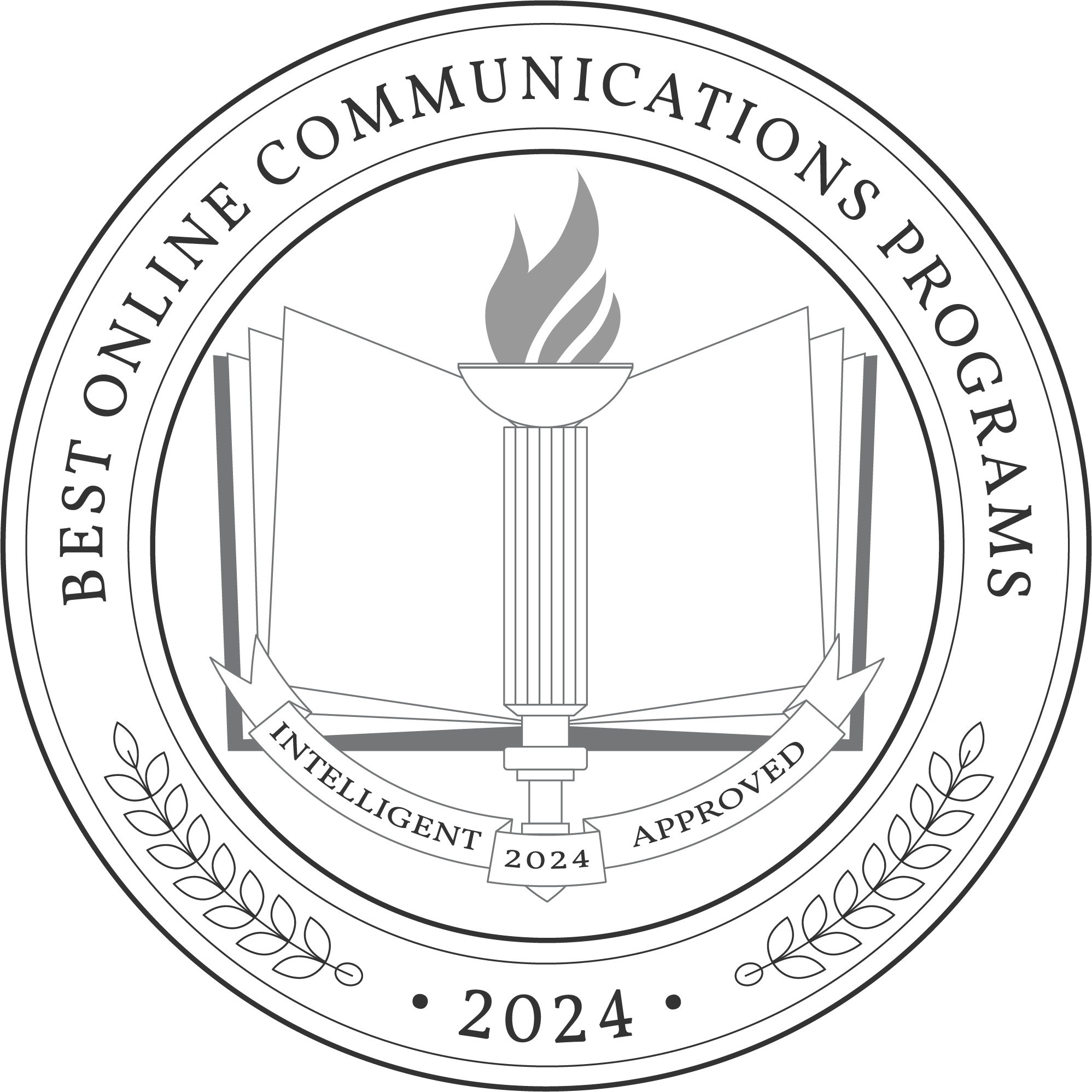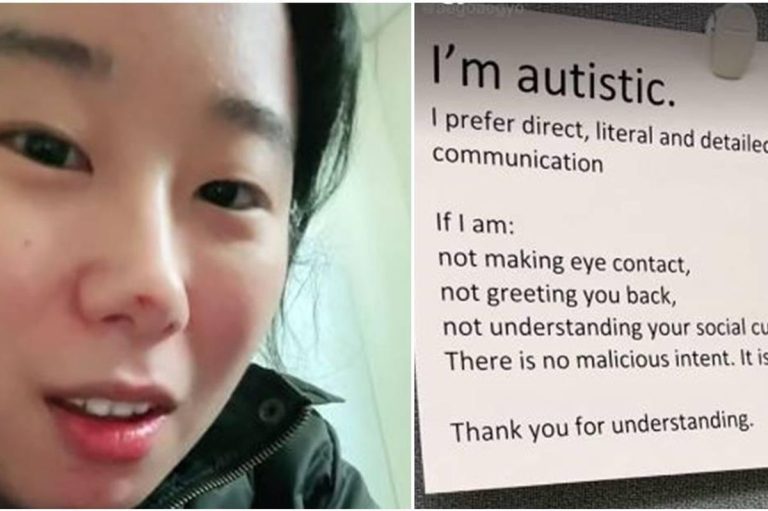What Degree is Best for Communication?
The best degree for communication is a Bachelor’s degree in Communications. With this degree, you’ll gain the necessary skills for a successful career in various fields such as public relations, marketing, journalism, or event planning.
Additionally, a Communications degree provides a solid foundation in interpersonal and organizational communication, media studies, and critical thinking, equipping you with the essential tools to effectively convey messages and build relationships in the modern digital landscape. Whether you aspire to be a skilled communicator, a persuasive marketer, or an influential leader, earning a degree in Communications will set you on the path to achieve your professional goals.
Start your journey towards a rewarding career in communication today.

Credit: www.bestcommunicationsdegrees.com
1. Importance Of A Communication Degree
A Communication Degree is highly valuable for those interested in effective communication skills across various industries. It equips individuals with the knowledge and skills necessary to excel in fields like public relations, marketing, journalism, and business communication.
Obtaining a Communication Degree is a strategically wise move in today’s interconnected world. This program equips students with essential skills and knowledge that are highly valued in various personal and professional settings. Let’s explore some of the key reasons why pursuing a Communication Degree is essential for personal growth and career success.
1.1 Enhancing Interpersonal And Communication Skills
By pursuing a Communication Degree, individuals can significantly enhance their interpersonal and communication skills. This program provides students with practical opportunities to master effective verbal and non-verbal communication techniques. They learn how to express ideas clearly, actively listen, and adapt their communication style to different audiences and contexts. These skills are invaluable in building strong relationships, resolving conflicts, and fostering teamwork in any given setting.
1.2 Gaining A Comprehensive Understanding Of Communication Theory
A Communication Degree offers a comprehensive understanding of communication theory, positioning graduates as experts in the field. Through in-depth study and analysis, students gain insights into the complex dynamics of communication processes. They explore the impact of culture, technology, and media on interpersonal and mass communication. This knowledge empowers graduates to navigate the ever-evolving communication landscape, making them valuable assets across industries.
1.3 Developing Critical Thinking And Analytical Skills
Another significant advantage of pursuing a Communication Degree is the development of critical thinking and analytical skills. Students are encouraged to think critically about communication problems and find innovative solutions. They learn to assess the credibility of information, analyze data, and interpret research findings. These skills enable graduates to make informed decisions, evaluate communication strategies, and effectively navigate persuasive messages encountered in everyday life.
In summary, a Communication Degree equips individuals with invaluable skills that are essential for personal and professional success. By enhancing interpersonal and communication skills, gaining a comprehensive understanding of communication theory, and developing critical thinking and analytical skills, graduates are well-prepared to thrive in various roles and industries. Whether it’s in business, public relations, media, or any other field that relies heavily on effective communication, a Communication Degree opens doors to countless opportunities.
2. Different Types Of Communication Degrees
The field of communication offers a variety of specialized degrees that can lead to rewarding careers in various industries. Whether you are interested in business communication, journalism, public relations, or digital media, there is a degree program tailored to your interests and career goals. In this section, we will explore the different types of communication degrees available.
2.1 Bachelor’s Degree In Communication
A Bachelor’s Degree in Communication is a popular choice for those looking to enter the field. This degree provides a comprehensive understanding of communication theories and practices, as well as the skills needed to excel in various communication roles. Coursework typically covers topics such as interpersonal communication, public speaking, media studies, and writing for different platforms.
With a Bachelor’s Degree in Communication, you can pursue a variety of career paths, including marketing, advertising, public relations, journalism, and social media management. This degree equips you with essential skills in effective communication, critical thinking, and problem-solving, which are highly valued in today’s job market.
2.2 Master’s Degree In Communication
A Master’s Degree in Communication provides an advanced level of education in the field. This degree is ideal for individuals seeking leadership positions or those looking to specialize in a specific area of communication. With a Master’s Degree in Communication, you will have the opportunity to delve deeper into communication theories, research methods, and strategic communication planning.
Graduates with a Master’s Degree in Communication often pursue careers in management, consulting, academia, or high-level communication roles in industries such as healthcare, politics, and technology. This degree offers a competitive edge and demonstrates your expertise and commitment to the field.
2.3 Specialized Communication Degrees
In addition to Bachelor’s and Master’s degrees in Communication, there are specialized communication degrees that cater to specific industries or communication roles. These specialized degrees allow you to gain in-depth knowledge and skills in areas such as corporate communication, digital media, advertising, public relations, and journalism.
Some examples of specialized communication degrees include:
| Specialized Communication Degrees |
|---|
| Digital Communication |
| Advertising and Public Relations |
| Journalism |
| Health Communication |
| Intercultural Communication |
These specialized degrees provide targeted training and knowledge necessary for specific roles and industries. They offer a strategic advantage in competitive job markets, allowing you to stand out among other candidates with a general communication degree.
In conclusion, the field of communication offers a range of degrees catered to both broad and specialized interests. From a Bachelor’s Degree in Communication to a Master’s Degree and specialized programs, each degree equips you with the skills and knowledge needed to excel in the field of communication.
3. Careers And Opportunities With A Communication Degree
A Communication degree offers diverse career paths and opportunities. Graduates can excel in fields such as public relations, journalism, advertising, marketing, and corporate communications, allowing them to contribute effectively to various industries. This degree equips professionals with strong interpersonal and written communication skills, making it an ideal choice for those interested in the art of effective communication.
A communication degree opens up a wide range of exciting and dynamic career possibilities. Whether you have a passion for public relations, marketing, research, human resources, or corporate communications, there are numerous opportunities for you to make your mark. Let’s explore some of the most popular and in-demand career paths for communication graduates:
3.1 Public Relations Specialist
A public relations specialist plays a crucial role in building and maintaining a positive public image for individuals, organizations, and brands. They craft persuasive messages, develop strategic communication plans, and engage with media representatives. In a world driven by public perception, PR specialists are essential in managing crises, promoting product launches, and fostering strong relationships with the target audience.
3.2 Marketing Communications Manager
A marketing communications manager combines the power of marketing and communication to promote products, enhance brand recognition, and engage with consumers. These professionals create compelling marketing campaigns, manage social media presence, coordinate advertising efforts, and analyze market trends. With their creative flair and strategic thinking, marketing communications managers play a pivotal role in driving brand growth and customer loyalty.
3.3 Media And Communication Researcher
If you have a penchant for analysis and a fascination with the media landscape, a career as a media and communication researcher might be ideal for you. These experts study media trends, conduct surveys, interpret data, and generate valuable insights to help organizations understand their target audience better. Through their research findings, they guide marketing and communication strategies, ensuring they align with audience preferences and capture attention effectively.
3.4 Human Resources Specialist
In a highly interconnected world, effective communication within organizations is paramount. Human resources specialists with a communication background excel in creating a positive work environment, facilitating effective teamwork, and resolving conflicts. They handle employee relations, develop internal communication strategies, and ensure the successful implementation of organizational policies. With their exceptional interpersonal skills and understanding of communication dynamics, HR specialists foster productive relationships between management and employees.
3.5 Corporate Communication Manager
A corporate communication manager plays a vital role in shaping and maintaining a consistent corporate image. They develop and implement communication strategies to effectively convey an organization’s values, mission, and achievements to both internal and external stakeholders. Corporate communication managers oversee media relations, crisis communication planning, executive messaging, and branding efforts. By aligning communication practices with organizational objectives, they contribute to building trust, credibility, and goodwill for the company.
4. Factors To Consider When Choosing A Communication Degree
Choosing the best communication degree requires considering several factors such as curriculum, specialization options, accreditation, career opportunities, and faculty expertise. By assessing these aspects, prospective students can make an informed decision that aligns with their academic and professional goals.
When deciding on the best communication degree for your future career, there are several key factors to consider. These factors will help you make an informed decision that aligns with your personal interests and goals. Take a close look at these five important considerations, which can greatly impact your educational experience and future success in the field.4.1 Personal Interests And Strengths
Consider your personal interests and strengths when choosing a communication degree. Think about the areas of communication that you are most passionate about and excel in. Are you interested in public relations, journalism, digital media, or interpersonal communication? Identify your strengths and strive to pursue a degree that aligns with those areas. By focusing on your interests and strengths, you will be more motivated and engaged with your studies.4.2 Career Goals And Industry Requirements
Your career goals and industry requirements should also play a significant role in your decision-making process. Research the job market in the field of communication and identify the specific roles that interest you. Consider the qualifications and skills employers look for in those positions. This will help you choose a degree program that provides the necessary knowledge and skills required for your desired career path.4.3 Accreditation And Reputation Of The Program
Accreditation and the reputation of the program you choose are crucial factors in ensuring the quality of your education. Look for programs that are accredited by recognized bodies in the field of communication. Accreditation ensures that the program meets certain academic standards and has a reputable track record. Research the program’s reputation, read student reviews, and consider the accomplishments of its alumni. This will give you insight into the program’s credibility and the opportunities it can offer.4.4 Curriculum And Course Offerings
Examine the curriculum and course offerings of potential communication degree programs. Look for programs that offer a diverse range of courses that align with your interests and career goals. Consider whether the program emphasizes practical skills, theoretical knowledge, or a combination of both. Evaluate the flexibility of the curriculum and the opportunities for specialization or concentration in specific areas of communication. A well-rounded curriculum will provide you with a strong foundation and the necessary expertise to succeed in the field.4.5 Internship Or Experiential Learning Opportunities
Internship or experiential learning opportunities can greatly enhance your educational experience and increase your employability in the field of communication. Look for programs that have established relationships with industry professionals and organizations, offering internships, cooperative education, or other experiential learning opportunities. These opportunities provide real-world experience, networking opportunities, and a chance to apply your classroom knowledge to practical situations. Consider the availability and quality of these experiences when choosing a communication degree program. In conclusion, when choosing a communication degree, it is important to consider your personal interests and strengths, as well as your career goals and industry requirements. Additionally, accreditation and the reputation of the program, the curriculum and course offerings, and internship or experiential learning opportunities play significant roles in making an informed decision. By carefully evaluating these factors, you can choose a communication degree program that aligns with your aspirations and sets you on a path towards a successful career in the field.5. Tips For Success In A Communication Degree Program
Obtaining a communication degree is an excellent choice for individuals who possess strong interpersonal skills and a passion for effective communication. However, simply enrolling in a communication degree program is not enough to guarantee success. To make the most out of your education and future career, it is vital to follow these five tips:
5.1 Actively Participate In Class Discussions And Projects
Engaging in class discussions and actively participating in group projects is a vital aspect of success in a communication degree program. By contributing to class discussions, you can enhance your critical thinking and communication skills. Collaborating with classmates in projects allows you to develop your teamwork abilities and build lasting connections within the field of communication.
5.2 Seek Internship Or Volunteer Opportunities
One of the most effective ways to gain practical experience in the communication industry is by seeking internships or volunteer opportunities. These experiences provide you with hands-on training and a chance to apply your theoretical knowledge in real-world scenarios. Moreover, internships and volunteer work can often lead to valuable networking connections and potential job opportunities.
5.3 Build A Professional Network
Building a strong professional network is fundamental for success in any industry, and communication is no exception. Networking can open doors to job prospects, mentorship opportunities, and collaborative projects. Attend industry conferences, join professional associations, and connect with experts and peers through social media platforms to expand your network and stay updated with the latest trends and practices.
5.4 Develop Strong Communication And Writing Skills
As a communication professional, your ability to effectively communicate and write is crucial. Focus on honing your communication skills by practicing public speaking, engaging in persuasive conversations, and refining your nonverbal communication abilities. Additionally, invest time in developing your writing skills as clear and concise writing is a valuable asset in the field of communication.
5.5 Stay Updated With Industry Trends And Technologies
The communication industry is constantly evolving, with new technologies and trends shaping the way we connect and engage with others. To stay ahead, it is essential to stay informed about the latest industry trends and technological advancements. Regularly reading industry publications, following thought leaders, and attending relevant workshops or webinars will ensure you stay updated and adaptable in this dynamic field.

Credit: www.intelligent.com
:max_bytes(150000):strip_icc()/best-jobs-for-communications-majors-2059631_final4-edit-51d71896e19947af80423a03e536fb0a.jpg)
Credit: www.thebalancemoney.com
Frequently Asked Questions Of What Degree Is Best For Communication?
Should I Get A Ba Or Bs In Communications?
A BA in communications focuses on theory and broad understanding, while a BS offers more practical skills and technical knowledge. Choose based on your career goals and interests.
Is Communications A High Paying Degree?
Yes, communications can lead to high-paying jobs. Many industries value effective communication skills, which can result in well-compensated positions.
What Is A Communication Degree Called?
A communication degree is called a Bachelor’s in Communication or a Bachelor’s in Communication Studies.
What Jobs Should I Look For With A Communications Degree?
Some potential job options for individuals with a communications degree include public relations specialist, marketing coordinator, social media manager, corporate communications specialist, and media relations officer.
What Are The Best Degree Options For Communication?
Degrees in communication, journalism, public relations, media studies, or marketing can enhance your communication skills and career prospects.
Conclusion
Choosing the best degree for communication depends on your personal goals and interests. Consider your passion for writing, speaking, and interacting with others. Explore options like a degree in journalism, public relations, or media studies to enhance your communication skills.
Ultimately, pursuing a degree that aligns with your strengths and aspirations will set you on the path to a successful career in the dynamic field of communication.




